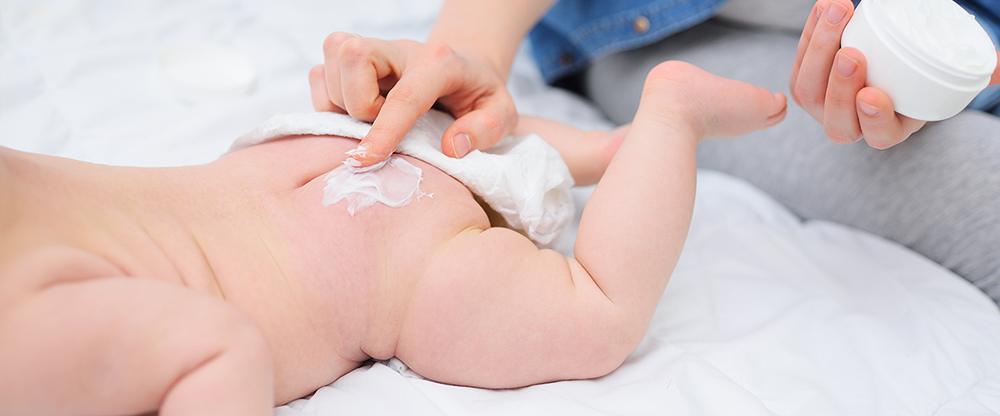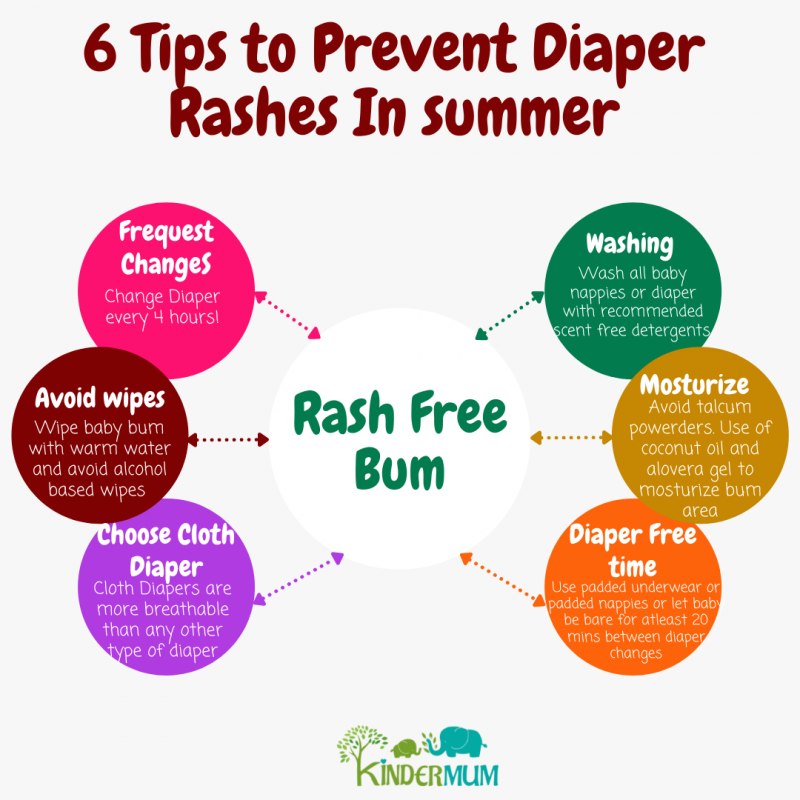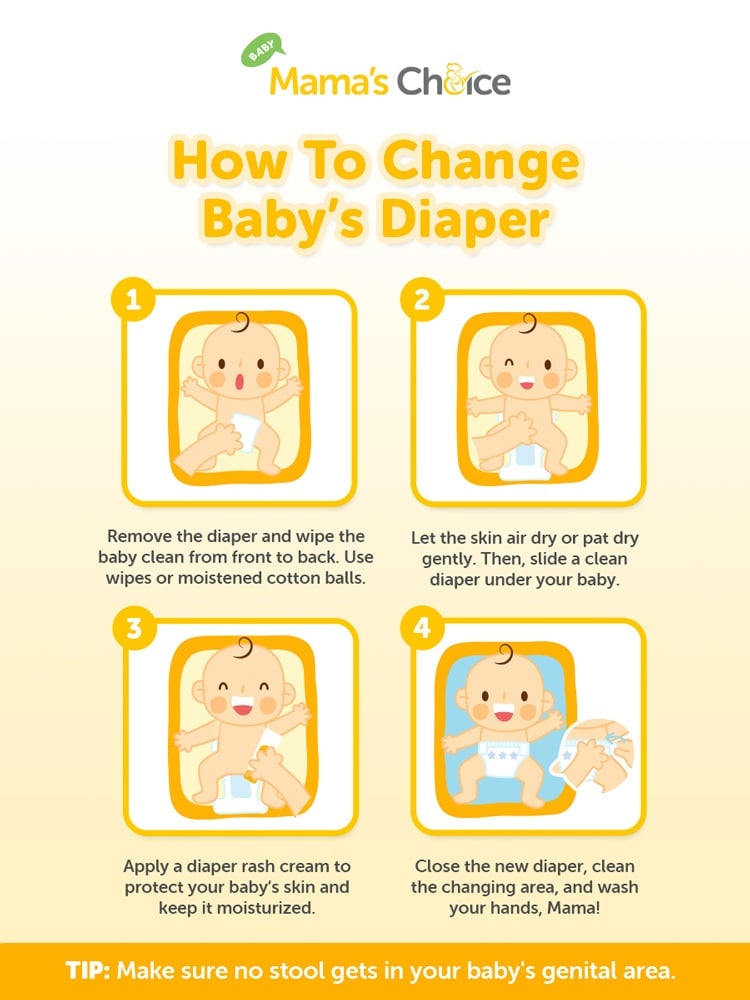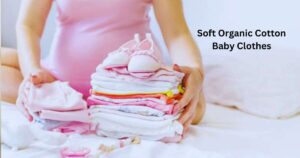Keep your baby’s diaper area clean and dry. Change diapers frequently to prevent prolonged exposure to moisture and irritants.
Diaper rash is a common issue for babies but can be prevented with proper care. Maintaining hygiene by frequently changing diapers helps reduce the risk of irritation. Use gentle wipes and ensure the skin is thoroughly dry before putting on a new diaper.
Applying a barrier cream can provide additional protection against moisture. Opt for breathable, well-fitting diapers to minimize friction. Always be attentive to your baby’s skin condition and consult a pediatrician if severe rashes occur. With these simple steps, you can keep your baby’s delicate skin healthy and rash-free.

Credit: mamaschoice.sg
Causes Of Diaper Rash
Understanding the causes of diaper rash can help you prevent it. Diaper rash is common among babies. But knowing its triggers makes it easier to avoid.
Common Triggers
Several triggers can cause diaper rash. The most common triggers include:
- Wet Diapers: Prolonged contact with urine or stool irritates the skin.
- Chafing: Tight diapers or clothing can rub and damage the skin.
- New Products: Some wipes, detergents, or diapers can irritate sensitive skin.
Environmental Factors
Environmental factors can also contribute to diaper rash. These include:
| Factor | Description |
|---|---|
| Heat and Humidity | Hot weather can increase sweating and moisture. |
| Dirty Diapers | Not changing diapers often enough leads to irritation. |
| Allergens | Substances in the environment may cause allergic reactions. |
Preventative Measures
Preventing baby diaper rash can keep your baby happy and healthy. By taking a few simple steps, you can avoid the discomfort and pain of diaper rash. Follow these key preventative measures to ensure your baby’s skin stays smooth and rash-free.
Regular Diaper Changes
Changing your baby’s diaper regularly is crucial. Wet and dirty diapers can irritate your baby’s skin. Aim to change the diaper every 2-3 hours. At night, try to change the diaper at least once. Frequent changes keep the skin dry and clean.
Proper Cleaning Techniques
Proper cleaning is essential to prevent diaper rash. Always use a gentle, hypoallergenic wipe. Avoid wipes with alcohol or fragrance. These can irritate the skin. You can also use a soft cloth and warm water. Pat the area dry with a clean towel.
For extra protection, apply a thin layer of diaper cream. Look for products with zinc oxide. This forms a barrier against moisture. Avoid tight diapers. Ensure a snug but comfortable fit to allow air circulation.
| Step | Description |
|---|---|
| 1 | Change diapers every 2-3 hours. |
| 2 | Use gentle, hypoallergenic wipes. |
| 3 | Pat the area dry. |
| 4 | Apply a thin layer of diaper cream. |
| 5 | Ensure a comfortable diaper fit. |
Following these steps will help prevent diaper rash. Keep your baby comfortable and happy with proper care.
Choosing The Right Diapers
Selecting the right diaper is crucial for preventing diaper rash. Comfort, absorbency, and material quality matter. Let’s explore the options to ensure your baby’s skin stays healthy.
Disposable Vs. Cloth
Both disposable and cloth diapers have their pros and cons.
| Type | Pros | Cons |
|---|---|---|
| Disposable |
|
|
| Cloth |
|
|
Eco-friendly Options
Eco-friendly diapers are gaining popularity. They are made from natural materials and are free from harmful chemicals. Here are some benefits:
- Biodegradable materials help protect the environment.
- Hypoallergenic properties reduce the risk of rashes.
- Sustainable production methods benefit the planet.
Consider brands that offer organic diapers. These options often use bamboo or cotton. They are soft and breathable, which helps keep your baby’s skin dry and rash-free.

Credit: kindermum.com
Importance Of Diaper-free Time
Diaper-free time is essential for your baby’s skin health. It helps keep the skin dry and lets it breathe. This simple practice can significantly reduce the chances of diaper rash.
Benefits
Allowing your baby some diaper-free time can bring numerous benefits:
- Reduces Moisture: Moisture trapped in diapers can lead to rashes.
- Promotes Airflow: Fresh air keeps the skin dry and healthy.
- Prevents Irritation: Less contact with diaper material reduces skin irritation.
How To Implement
Implementing diaper-free time is easy and can be done daily:
- Choose Safe Area: Lay a waterproof mat on the floor.
- Set a Schedule: Aim for 10-15 minutes after each diaper change.
- Use Playtime: Engage your baby with toys during this time.
These steps ensure your baby enjoys diaper-free time safely and effectively.
Effective Diaper Creams
Diaper rash can cause discomfort for your baby. Using effective diaper creams can help soothe and prevent it. Let’s explore the top ingredients and application tips for the best results.
Top Ingredients
When choosing a diaper cream, look for these key ingredients:
- Zinc Oxide: Creates a barrier to protect the skin.
- Petrolatum: Helps keep moisture away from the skin.
- Aloe Vera: Soothes and heals irritated skin.
- Calendula: Reduces inflammation and promotes healing.
- Lanolin: Moisturizes and protects the skin.
Application Tips
Follow these tips to apply diaper cream effectively:
- Clean the area: Use a gentle wipe to clean the skin.
- Dry thoroughly: Pat the skin dry with a soft towel.
- Apply a thin layer: Spread the cream evenly over the diaper area.
- Use with each change: Apply cream every time you change the diaper.
- Be consistent: Regular use prevents diaper rash from recurring.
Here is a table summarizing the top ingredients and their benefits:
| Ingredient | Benefit |
|---|---|
| Zinc Oxide | Protects and soothes the skin |
| Petrolatum | Keeps moisture away |
| Aloe Vera | Heals and soothes irritation |
| Calendula | Reduces inflammation |
| Lanolin | Moisturizes and protects |

Credit: mamaschoice.sg
Diet And Hydration
Ensuring your baby’s diet and hydration are well-managed can greatly reduce the risk of diaper rash. What your baby eats and drinks can affect their skin health. By paying attention to their diet and ensuring they stay hydrated, you can help maintain their skin’s natural barrier.
Impact On Skin
Your baby’s skin can react to certain foods and drinks. Foods that are too acidic can cause irritation. Keeping the skin hydrated is also crucial. Dehydration can make the skin more prone to rashes.
Hydrated skin is less likely to break down. This helps in preventing rash. Ensure your baby drinks enough fluids throughout the day. Water is the best option for hydration.
Foods To Avoid
Some foods can trigger diaper rash. Avoid foods that are high in acid.
| Food | Reason to Avoid |
|---|---|
| Citrus Fruits | High in acid, can irritate skin |
| Tomatoes | Also high in acid, can cause irritation |
| Strawberries | Can be acidic and cause rash |
| Spicy Foods | Can cause skin irritation |
It’s also wise to avoid foods that can cause allergies. Common allergens include dairy, nuts, and eggs.
Introduce new foods one at a time. This helps to identify any potential allergens.
Clothing Choices
Choosing the right clothing can prevent baby diaper rash. The right clothes can keep your baby comfortable and rash-free. Let’s explore the best clothing choices for your baby.
Breathable Fabrics
Breathable fabrics allow air to circulate around your baby’s skin. This helps to keep the skin dry and cool.
- Cotton is an excellent choice. It absorbs moisture well.
- Bamboo fabric is soft and breathable.
- Linen is lightweight and allows airflow.
Avoid synthetic fabrics. They can trap heat and moisture. This can cause rashes and irritate your baby’s skin.
Proper Fit
Ensure your baby’s clothes fit properly. Clothes that are too tight can cause friction. This can lead to diaper rash.
| Clothing Item | Proper Fit Tips |
|---|---|
| Onesies | Should be snug but not tight. Allow room to breathe. |
| Pants | Choose a comfortable waistband. Avoid elastic that leaves marks. |
| Diapers | Ensure a snug fit around the legs and waist. Change frequently. |
Check your baby’s clothes regularly. Make sure they are not too tight or too loose. Adjust as needed to keep your baby comfortable.
When To See A Doctor
Sometimes, diaper rash needs more than home care. Parents should know the signs that require a doctor’s attention. Quick action can prevent complications and keep your baby comfortable.
Signs Of Infection
Not all diaper rashes are the same. Look for signs of infection. If the rash has pus-filled blisters or open sores, it might be infected. A fever is another red flag. If your baby’s skin feels very warm or you see red streaks, see a doctor.
Other signs include:
- Swelling in the diaper area
- Yellowish, crusty areas
- Spreading beyond the diaper area
Treatment Options
Doctors can offer treatments that you can’t get over the counter. They may prescribe antibiotic creams for bacterial infections. If the rash is fungal, they might suggest antifungal ointments. For severe rashes, a doctor might recommend a steroid cream.
Here’s a quick reference table for common treatments:
| Condition | Recommended Treatment |
|---|---|
| Bacterial Infection | Antibiotic Cream |
| Fungal Infection | Antifungal Ointment |
| Severe Diaper Rash | Steroid Cream |
Remember, it’s always better to be safe. If you have doubts, consult your doctor.
Frequently Asked Questions
What Causes Baby Diaper Rash?
Baby diaper rash is often caused by prolonged exposure to moisture. It can also result from friction, irritants in diapers, or baby wipes.
How Can I Prevent Diaper Rash?
To prevent diaper rash, change diapers frequently. Use gentle wipes and ensure the diaper area is dry before putting on a new diaper.
Which Diaper Creams Are Best For Rash?
Look for diaper creams containing zinc oxide or petroleum. These ingredients create a barrier that protects the skin from moisture and irritants.
How Often Should I Change My Baby’s Diaper?
Change your baby’s diaper every 2 to 3 hours, or immediately after they soil it. Frequent changes help prevent diaper rash.
Conclusion
By following these tips, you can keep your baby’s skin rash-free and healthy. Regular diaper changes, proper hygiene, and breathable fabrics are key. Always consult a pediatrician for persistent issues. Your baby’s comfort and well-being are worth the effort. Keep those little smiles bright and happy!



